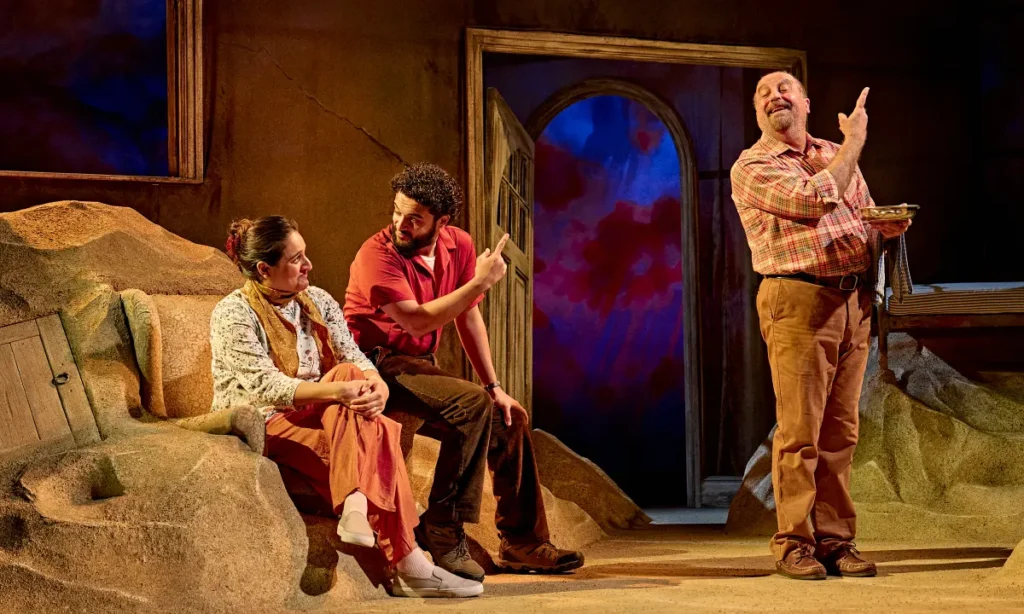The Lowry, Salford – until 22nd April 2023
Reviewed by Matthew North
3 ***
To call The Beekeeper of Aleppo a story for our time would be an understatement. Christy Lefteri’s original novel is the epic, moving tale of a family escaping war-torn Aleppo at the outset of the Syrian civil war and embarking on the dangerous journey to safety – crossing multiple borders before finding safety in Yorkshire.
We first meet Nuri, the outstanding Alfred Clay, at the end of his story – safe in the UK with his wife, Afra. Clay speaks to the audience in a way that feels he is speaking to you, and only you; his soft but direct tone making it impossible to pay anything but absolute attention. Along with Afra (a deeply moving Roxy Faridany), they begin to reveal the devastating stream of events which made the treacherous journey to safety the only possible option for this small, complex yet fiercely committed family.
One only needs to look at the front page of a newspaper or scroll twitter for less than thirty seconds to remember that the subject of asylum seekers and our responsibilities to protect them are still at the forefront of the endless political ballgames we seem to be witness to on a daily basis. This adds an almost unbearable poignancy to the story unfolding – but also means The Beekeeper of Aleppo does exactly what any good story should do. It holds a mirror to the audience and demands they take a long hard look.
This said, whilst the story itself and the performances onstage are unforgettable and linger long beyond the final bow – the production itself fails to make a real impression much beyond the house lights coming up. There are moments of real beauty (an extended scene in the second act set in a park in Athens was a real highlight) but Miranda Cromwell’s direction often feels somewhat chaotic and allows precious little time for the audience (and indeed the characters) to find their feet. This may well have been a stylistic choice to reflect the urgency of the journey taking place but the moments both audience and characters were able to just take a breath were where this production really took flight.
The combination of design (Ruby Pugh), lighting (Ben Ormerod) and film design (Ravi Deepres) is a similar story. There are moments the three elements come together in incredibly effective fashion (the set suddenly being covered in projected images of the real Aleppo in ruin was perfectly judged and incredibly moving) but also left a real desire for the story taking place in front of us to be the centre of attention as opposed to what was, at times, a rather relentless stream of projections allowing for very little imagination to be put into play. Whilst the technical aspects of the production are genuinely impressive, well maintained and executed very well, it’s hard not to wonder if there was another way of realising the various settings and countries.
Reservations aside, The Beekeeper of Aleppo amounts to pretty essential viewing – particularly during the tumultuous time we find ourselves currently living in. It has an urgency and a message which needs to be heard now more than ever, never shying away from the harsh realities of a situation all too close to so many people around the world.

